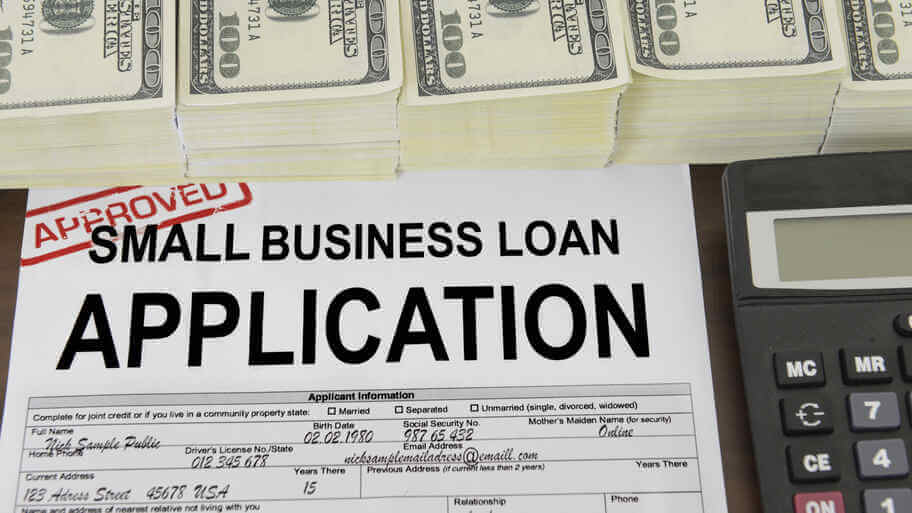You may need a small business loan to fund your venture, bring it to the next level, or shield it from unforeseen financial crises. Doing your research before the application is crucial to apply successfully. This article will outline how to qualify for the best small-business loan.
5 Steps to a Small-Business Loan
1. Build Your FICO SBSS Business Credit Score
Before processing any loan application, financial institutions first check your credit score. This score is an aggregate of your credit history, including the number of open accounts you have, debt levels, number of active and settled loans, repayment history, and several other indicators of your financial health. The higher your credit score, the more money you’re likely to secure and at lower interest rates.
You can apply for a credit report from any of the three leading U.S. credit bureaus—TransUnion, Equifax, and Experian—for free once a year. Some finance websites and credit card issuers also process these reports for free.
Most major banks only give low-rate small-business loans to applicants or businesses with credit scores of at least 680. If you don’t meet this cutoff, you can apply for p2p small business loans (peer-to-peer loans) or from banks that grant small-business loans to applicants with poor credit. Some non-profit microlenders also give low-rate loans regardless of your credit score.
However, the best alternative is to work on building your credit score. You can do this in the following ways:
-
-
-
-
- Sort your bill payment: Most lenders rely on the applicant’s FICO SBSS business credit score to determine creditworthiness. The most significant determinant of your FICO score is your bill payment history. So, ensure that you pay your loans on time.
- Keep your credit utilization below 30%: Lenders also check the percentage of your credit limit that you’ve been using. To be on the safe side, do not use more than 30% of the credit card limit. You can do this by sorting outstanding monthly balances on time.
- Avoid “hard inquiries” as much as possible: These are inquiries related to applying for new credits—for instance, requests for mortgages, auto loans, and new credit cards. The more inquiries on your records, the lower your credit score.
- Keep your old accounts open: Lenders might also check how old your credit accounts are. Old accounts with positive records increase your credit score.
-
-
-
2. Know the Lender’s Minimum Qualifications and Requirements
Lenders have different qualification requirements for small business loans. Here are some eligibility criteria that apply for most banks:
-
-
-
- How long you’ve been in business—Most financial institutions have a two-year minimum threshold. If your business hasn’t been around for long, it may limit your loan options.
- The loan’s purpose—Some banks will ask you to submit a written statement on what you’ll be funding with the loan. Ensure that the statement is compelling and the purpose is proportional to the loan amount.
- Disclosure of other debts—While financial institutions have a system of determining if you have other loans, they may sometimes ask you to make a personal disclosure. They then measure your existing loans and interest payments against the venture’s turnover to calculate your debt service coverage ratio (DSCR).
- Ownerships and affiliations to other businesses—When applying for a loan, you should also be ready to state affiliations to other related ventures. Banks use this to determine any possible conflicts of interest.
- The industry of your business—Different industries have different risk levels. So, a lender might also check this to determine your eligibility.
- How much your business makes—Financial institutions will only give you loans that they know you can repay. So, before applying, confirm the lender’s turnover requirements for that specific amount.
-
-
Again, these requirements vary from one lender to the other. We recommend visiting the bank to confirm their requirements.
3. Gather Financial and Legal Documents
To prove that you meet the loan application requirements, you’ll have to submit financial and legal documents. As with the qualifications, the types of documents you’ll deposit vary from one lender to another. Some common ones include:
-
-
-
- Annual business revenue and profit records: Most lenders will request your business’ profit and loss statements within the past year. You should have updated the record at least 60 days before submission.
- Bank statements: Bank records help lenders determine if you can afford the loan you’re asking for and whether you’ll pay it back on time. They’re also a reflection of how well you manage your finances.
- Personal and business tax returns: These records help the lender gauge your financial health and ability to repay the loan. Most banks require tax records for at least the last two years.
- Business licenses and permits: These are proofs of ownership and that your business is real.
- Employer Identification Number (EIN): The EIN is not mandatory for all types of small businesses. It’s like a business social security number that lenders use to track your tax returns.
- Certificate of good conduct: This document proves that you haven’t been involved in any criminal activities recently. However, many lenders are now processing small business loans for felons.
-
-
4. Develop a Strong Business Plan
Your business plan document explains to the lender how you specifically intend to use the loan. Use it as a loan proposal to make a solid case and convince the bank to finance your project. It should highlight your goals, the steps you’ll use to achieve them, and how you’ll use the loan to fund them.
5. Provide Collateral
Most lenders don’t require collateral for small-business loans. However, some may ask you to put up a fixed deposit, especially if you’re applying for a bank or SBA loan. So, you should be ready to provide proof of collateral. You can also get a small-business loan with 401k collateral if you have an active 401k account. Some lenders give borrowers the alternative of giving a personal guarantee or blanket lien.
Different Types of Small-Business Loans
You can apply for various types of small-business loans depending on your goals and repayment ability:
-
-
- Term loans: Here, lenders give you a lump sum of cash. They have fixed monthly payments.
- Small Business Administration loans: These are low-rate government-backed loans. They take a long time to process. If you aren’t a U.S. citizen, you can apply for SBA small business loans for foreigners. To qualify, you require Legal Permanent Residents and Resident Aliens clearance.
- Equipment loans: As the name suggests, they are for purchasing large equipment to augment your operations.
- Microloans: These loans provide $50,000 or less for short-term projects or ventures that don’t require a lot of money.
- Merchant cash advances: Here, you borrow against your future sales. The lender will then deduct specified amounts from your daily or weekly debits.
-
Other famous small-business loans include p2p small-business loans, franchise loans, commercial real estate loans, invoice factoring, invoice financing loans, and business lines of credit. The most crucial step in successfully applying is determining the type of loan you need. Evaluate your business needs and research the various lenders available to narrow down your options.
Featured Image: Megapixl








